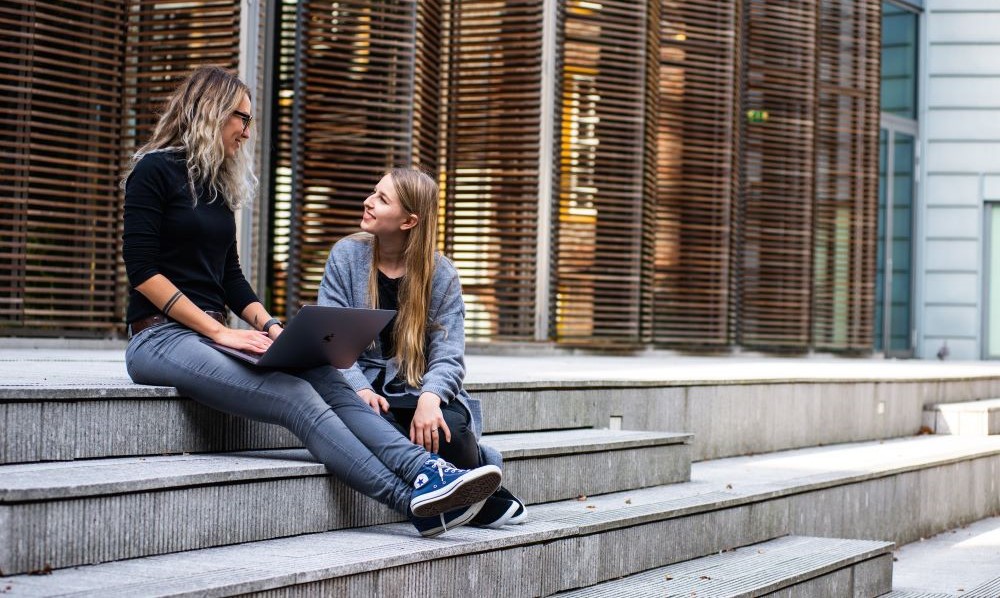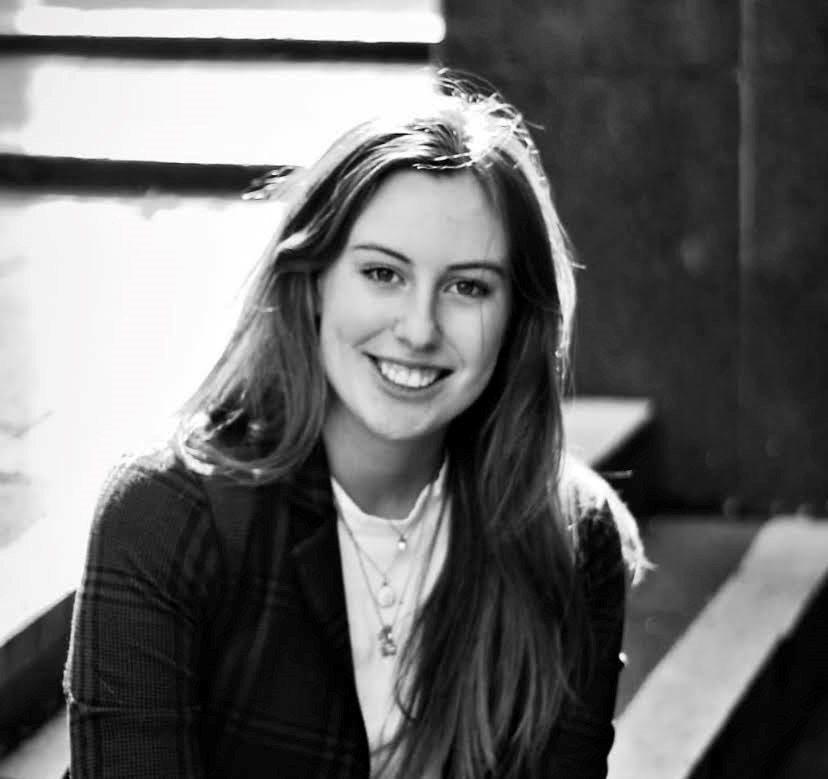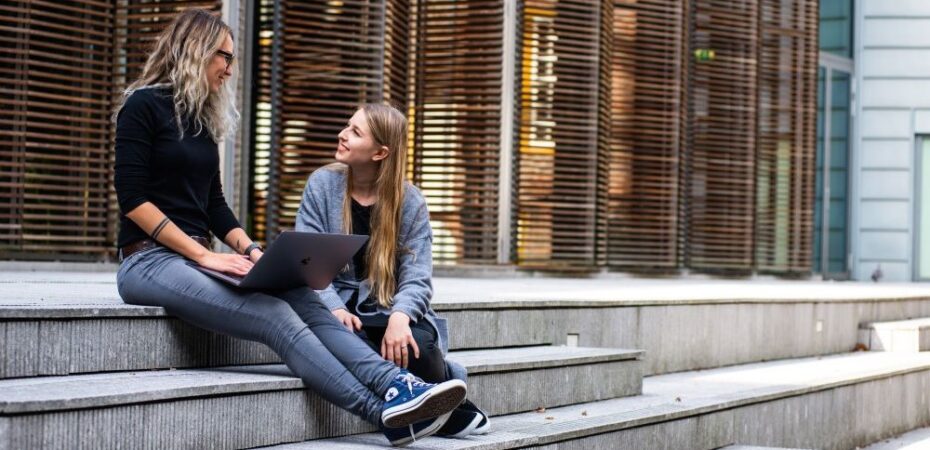
In this post, alumna Yval Koch talks about the moment she realised that her learning process didn’t apply to all learners, which motivated her to reflect on how to create inclusive learning environments as she ponders pursuing a career in academic teaching. Yval recently graduated from The University of Edinburgh with an MA in Geography and this post is part of the Learning and Teaching Enhancement theme: ‘Learning how others learn’↗️.
The Library – 5 pm. Once again, I am sat at my favourite desk, the one right by the window, the one overlooking the meadows where the afternoon sun just about peeks through the shutters. I’ve been here for what feels like years and must be mere hours. The only thing in mind is my next deadline whatever that may be. So, I must be learning… right? As we move from one essay to the next, watching the much-dreaded exam creep closer week by week, we tend to forget to stop, even just for a moment, and contemplate those all-important questions: What are we learning and how? Why and for whom?
This is a question that I have come back to time and time again, after a teaching and learning workshop I took part in last May. A workshop focused on those exact questions – something I hadn’t thought about at all and simply wasn’t much concerned about. We read, we write, we learn… simple, right? And yet, as soon as the workshop starts, I’m confronted by statements such as:
“I love exams. They are what get me going and work hard. I can only do it under pressure. For me, learning is about cooperation, working together, teaching each other. I like to sit and read and work it out by myself. I can’t deal with the distractions.”
The voices in the room couldn’t be any more different. Through the various exercises, we are again and again asked to disentangle our idea of learning. People are showing pictures of exam halls, of libraries and study halls and groups of people laughing and engaging with each other. I present the picture I have prepared. On it is a woman standing on a podium, passionately delivering her project to an unknown audience. As I clear my throat, I briefly wonder how this representation of learning fits into everything I have heard so far:
“Hmmm, for me learning is about feeling the pressure. I guess it is about standing up in front of people and having to perform. As I feel the dozen of eyes on me, my brain just kind of snaps and I finally make the connections I’ve been working towards. That’s when I feel satisfied that I’ve learned something.”
That learning process has always been self-explanatory. So, I’m surprised to hear that the people around me feel differently. Even if I had always known that some people don’t like the idea of standing in front of any audience; that the nerves get to them, and they feel overwhelmed. I had never considered that, for them, that might not be learning at all. Rather, learning becomes individualised, learning experiences made unique by those processing it.
As someone who wants to go into academic teaching, this realisation has personal consequences. As the workshop continues to explore the best teaching options for our individual learning experiences, I begin to understand how difficult it is to give people both the space and the tools to learn. How can we create an inclusive learning environment? What about those that can’t, or don’t want to, learn like everyone else? And as I ponder further, I begin to wonder about our system of learning – the one we have implied at most universities and other institutes of higher education. Should we enforce exams and rigid repetition of facts? Should we force everyone in front of the class, just because I learn best that way?
If the workshop taught me anything, it is that learning is not a linear process. It is not a question of what, but of how. We need to accept people’s differences and give each and every one of us the opportunity to express our learning needs and then, most importantly, give each other the space to do such. Only by accepting those differences in learning, whether that be the pace, method or type, can we move beyond an outdated, standardised attitude to learning itself.
So now, as I sit in that much-beloved chair in the library, reading yet another article or preparing for yet another presentation, I look at the people around me and see students preparing flashcards, talking to their friends or quietly scribbling away in their notebooks. And I look at things differently. It is as if those few hours of examining learning itself have ignited a flame of wanting to provide a space for everyone. After all, how I learn is(n’t) how you learn.
 Ylva Koch
Ylva Koch
Ylva Koch is a current Master’s student at the University of Vienna focusing on Sustainability & Political Ecology. She has recently graduated from the University of Edinburgh, studying a Geography MA where she first became passionate about all things academia-related.
LinkedIn: https://www.linkedin.com/in/ylvakoch↗️
Instagram: _ylva_


